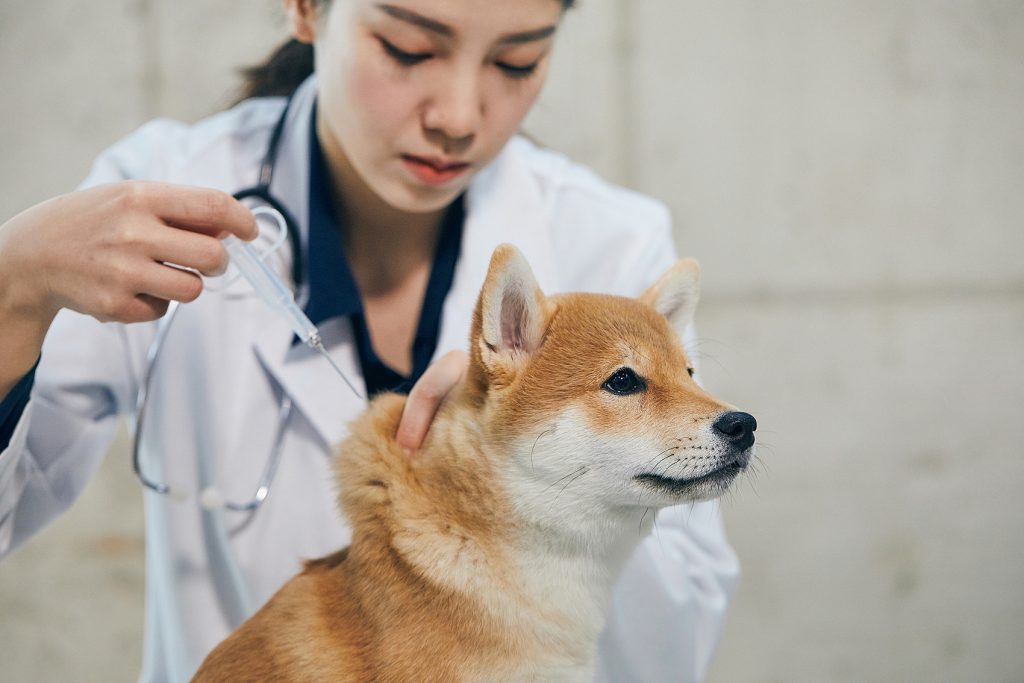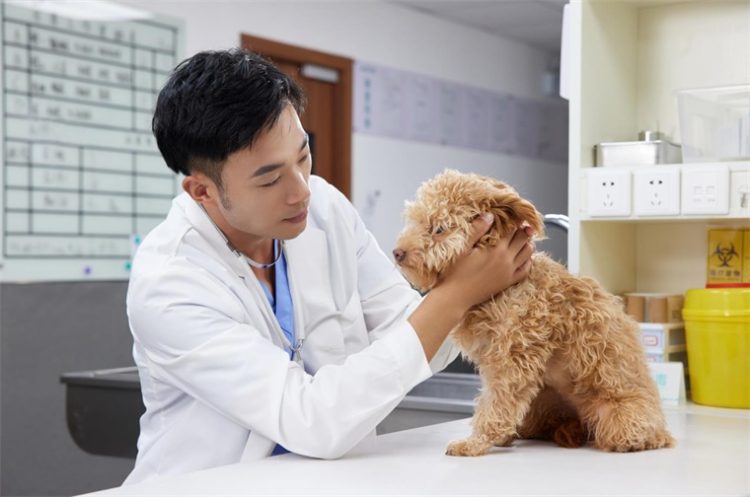Pets, like humans, can suffer from a variety of diseases that may affect their overall well-being and quality of life. Understanding these common conditions and how they impact your pet can help you recognize early warning signs and seek veterinary care when necessary. Below are some of the most common diseases that can affect both dogs and cats, along with their symptoms and how they can be managed.
1. Flea and Tick Infestations
Fleas and ticks are common external parasites that can cause a variety of health problems for your pets. These parasites not only irritate your pet’s skin but can also transmit diseases such as Lyme disease and flea allergy dermatitis.
Symptoms:
- Itchy skin or excessive scratching
- Red, inflamed skin
- Visible fleas or ticks in the fur
- Hair loss or hotspots (areas of irritated, infected skin)
- Lethargy and reduced activity
Prevention and Treatment:
- Regular flea and tick prevention treatments (e.g., topical treatments, oral medications)
- Keeping your pet’s living area clean and regularly washing bedding
- Veterinary care to treat infestations and manage infections caused by fleas or ticks
2. Parasitic Infections (Worms)
Intestinal parasites, including roundworms, tapeworms, and hookworms, are common in both dogs and cats. These parasites can be contracted from contaminated food, water, or contact with infected animals.
Symptoms:
- Vomiting or diarrhea
- Weight loss or poor coat condition
- Scooting (rubbing the bottom on the ground)
- Visible worms in the stool or around the anus
- Abdominal discomfort or bloating
Prevention and Treatment:
- Regular deworming treatments as prescribed by your veterinarian
- Keeping your pet’s living area clean and limiting exposure to feces from other animals
- Monitoring your pet for symptoms and seeking prompt treatment if necessary
3. Dental Disease
Dental problems, such as gum disease (gingivitis), periodontal disease, and tooth decay, are very common in pets, particularly as they age. Poor dental health can lead to significant pain, infections, and even other systemic issues like heart disease.
Symptoms:
- Bad breath (halitosis)
- Difficulty eating or chewing
- Red or swollen gums
- Tooth discoloration or loose teeth
- Excessive drooling
Prevention and Treatment:
- Regular tooth brushing with pet-safe toothpaste
- Professional dental cleanings by your veterinarian
- Providing dental chews and toys to help reduce plaque buildup
4. Obesity
Obesity is one of the most common health problems in pets, particularly in domesticated animals that are less active. Overfeeding and lack of exercise contribute to weight gain, which can lead to other health issues such as diabetes, heart disease, and joint problems.
Symptoms:
- Excessive weight gain or difficulty maintaining an ideal body weight
- Reduced energy levels or reluctance to exercise
- Difficulty breathing or walking
- A noticeable lack of waistline or bulging abdomen
Prevention and Treatment:
- Maintaining a healthy diet with portion control and regular feeding times
- Ensuring that your pet gets adequate exercise and mental stimulation
- Regular veterinary check-ups to monitor weight and overall health

5. Arthritis (Osteoarthritis)
Arthritis, particularly osteoarthritis, is common in older dogs and cats. It is a degenerative joint disease that causes pain, stiffness, and difficulty moving. It can significantly reduce a pet’s quality of life.
Symptoms:
- Lameness or limping
- Difficulty standing up or walking
- Stiffness, particularly after resting
- Reluctance to jump, climb stairs, or engage in normal activities
- Decreased activity levels
Prevention and Treatment:
- Regular veterinary assessments, particularly in older pets
- Weight management to reduce stress on joints
- Anti-inflammatory medications, pain relief, or joint supplements (e.g., glucosamine and chondroitin)
- Modifying the pet’s living environment to reduce strain on joints (e.g., soft bedding, ramps)
6. Kidney Disease (Renal Disease)
Kidney disease, especially chronic kidney disease (CKD), is common in older cats and dogs. It is a progressive condition that can lead to kidney failure if not properly managed. Kidney problems can affect the ability to filter waste products from the body.
Symptoms:
- Increased thirst and urination
- Lethargy or weakness
- Loss of appetite and weight loss
- Vomiting or diarrhea
- Dehydration or dry mouth
Prevention and Treatment:
- Regular monitoring of kidney function through blood tests, especially in senior pets
- Special diets formulated for kidney health
- Medication to control symptoms and slow progression
- Ensuring proper hydration and controlling electrolyte imbalances
7. Heart Disease
Heart disease is a common issue in both cats and dogs, especially as they age. It can result from conditions like heartworm disease, congenital heart defects, or acquired issues such as dilated cardiomyopathy (in dogs) or hypertrophic cardiomyopathy (in cats).
Symptoms:
- Coughing or labored breathing
- Reduced exercise tolerance or activity
- Swollen abdomen (due to fluid buildup)
- Weakness or fainting
- Rapid or irregular heartbeats
Prevention and Treatment:
- Regular check-ups and heart health screening, particularly in senior pets
- Medications such as diuretics, ACE inhibitors, or beta-blockers
- Ensuring proper heartworm prevention and parasite control
- Weight management and regular exercise (as advised by your vet)
8. Diabetes Mellitus
Diabetes is becoming more common in pets, particularly in dogs and overweight cats. It occurs when the body cannot produce enough insulin or properly regulate blood sugar levels. This can lead to other complications if not managed.
Symptoms:
- Excessive thirst and urination
- Weight loss despite a good appetite
- Lethargy or weakness
- Cloudy eyes (cataracts in dogs)
- Increased hunger
Prevention and Treatment:
- Maintaining a healthy diet and weight
- Regular veterinary exams to monitor glucose levels
- Insulin injections and blood sugar monitoring for diabetic pets
- Consistent feeding schedules and exercise routines
9. Skin Allergies
Skin allergies are common in both cats and dogs and can result from environmental factors (like pollen or dust mites) or food allergies. These allergies can cause irritation, hair loss, and infections if not treated.
Symptoms:
- Itchy skin, excessive scratching, or licking
- Red, inflamed skin or rashes
- Ear infections or head shaking
- Hair loss or hot spots
- Vomiting or diarrhea (in the case of food allergies)
Prevention and Treatment:
- Regular grooming to remove allergens from the coat
- Medication (antihistamines, steroids, or allergy shots) to manage allergic reactions
- Identifying and avoiding allergens (changing the pet’s food or environment)
- Regular veterinary visits to manage persistent issues
10. Respiratory Infections
Respiratory infections can affect both dogs and cats and can range from mild upper respiratory infections to more severe conditions like pneumonia. Infections can be caused by viruses, bacteria, or fungi.
Symptoms:
- Coughing, sneezing, or nasal discharge
- Labored or rapid breathing
- Loss of appetite or lethargy
- Congestion or wheezing
- Fever
Prevention and Treatment:
- Vaccinations to prevent viral respiratory infections (e.g., kennel cough, feline calicivirus)
- Antibiotics for bacterial infections, as prescribed by the vet
- Keeping your pet away from other sick animals
- Regular monitoring of symptoms and early treatment to avoid complications
Conclusion
There are many health conditions that can affect pets, and it’s important to monitor your pet’s behavior, eating habits, and general well-being to catch potential problems early. Regular veterinary check-ups are essential for maintaining good health and preventing or managing these common diseases. Early diagnosis and treatment can improve your pet’s quality of life and help prevent more serious complications in the future. By keeping an eye on their health and seeking veterinary care when necessary, you can ensure your pet stays happy, healthy, and safe.























































